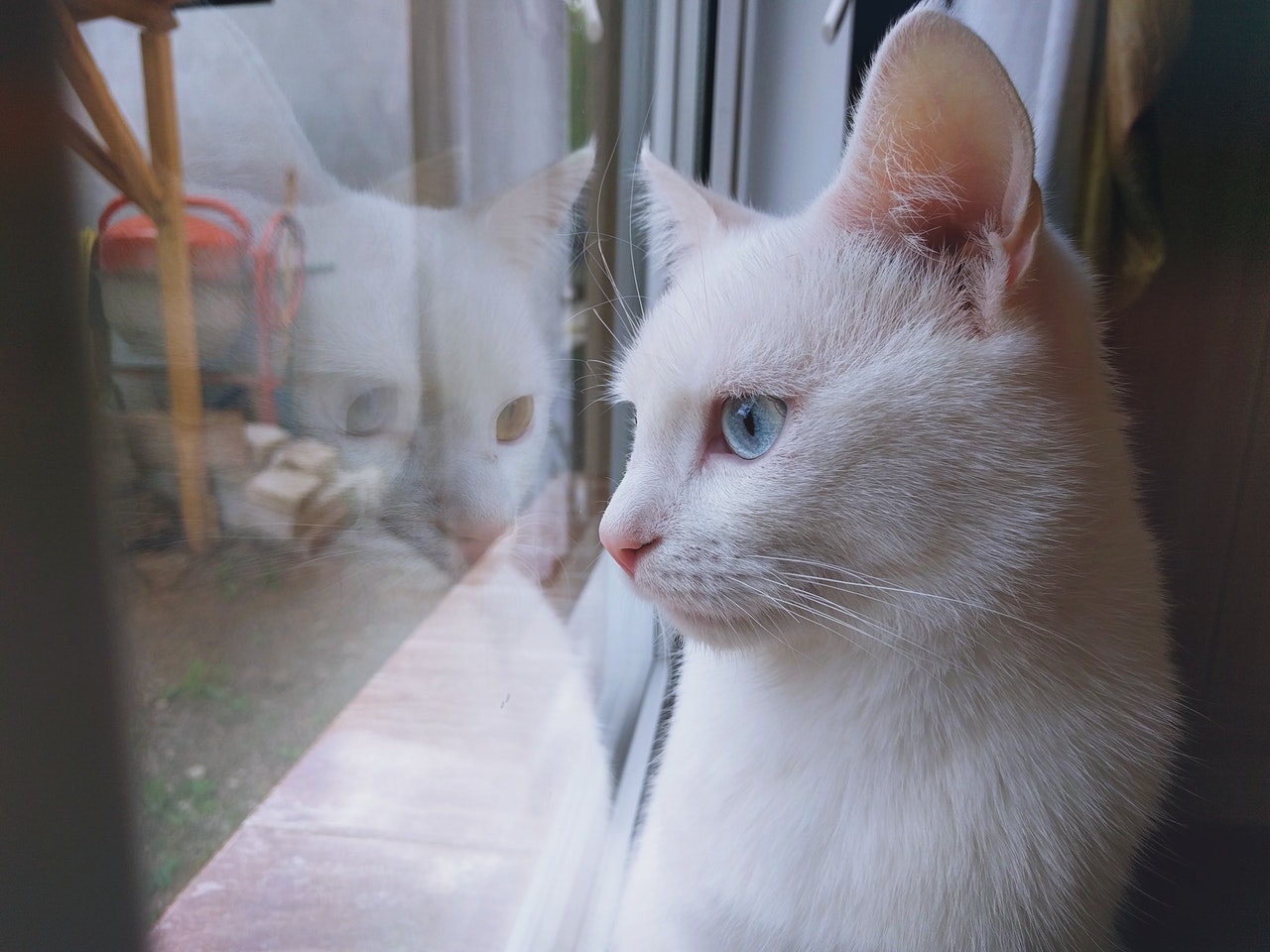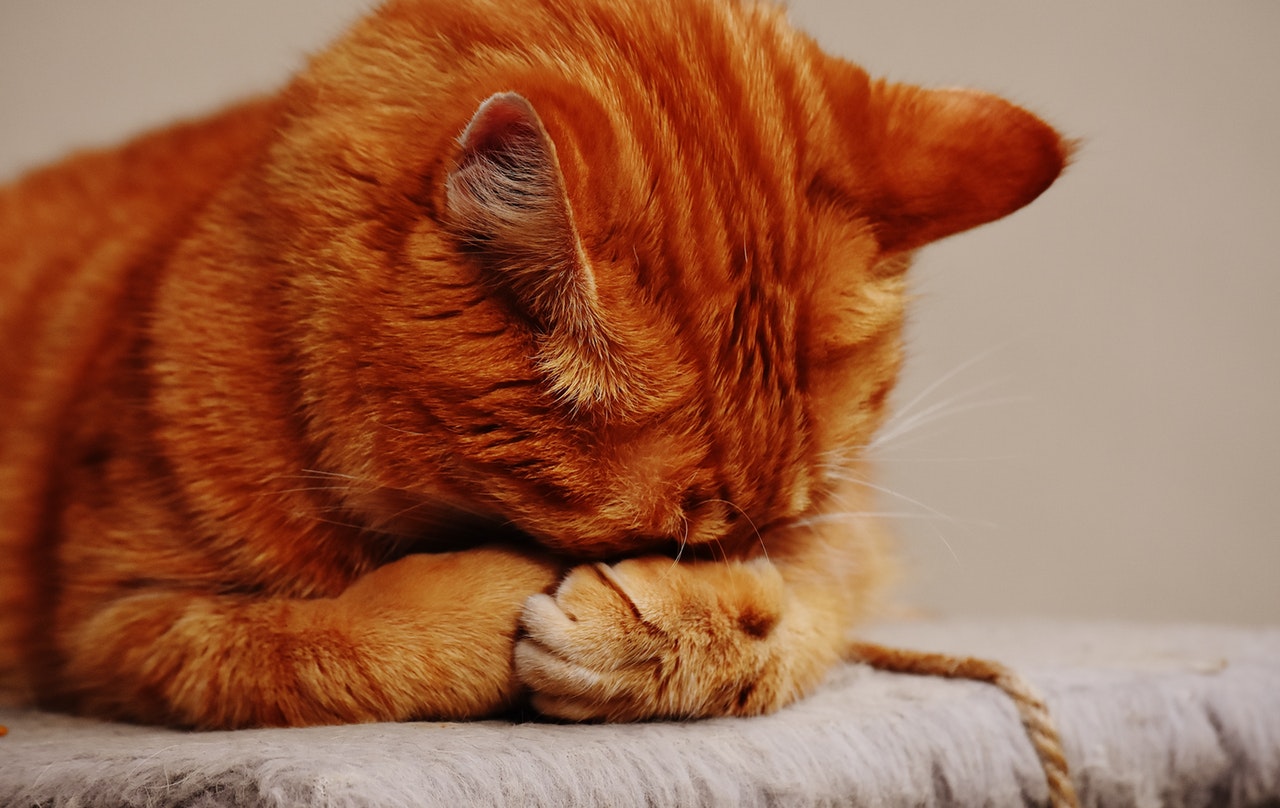2019-05-14

As we know cats are very independent and inactive creatures. They do not require daily walks like dogs, but that does not mean that cats do not need the company of their owner. Actually, cats are also social beings that build close bonds with humans. In addition, cats do not like changes, whether in the routine or work schedule of the owner. Sometimes, due to our carelessness, cats are diagnosed with a separation anxiety disorder that has unexplained causes. The symptoms of separation anxiety are always considered to be strange behavior or bad personality. Below we will examine the triggers of anxiety and look for useful methods for treating separation anxiety in cats.
Cat anxiety signs and triggers
The anxiety in cats is more difficult to recognize that the separation anxiety in dogs. Dogs will bark and whine to the owner or seriously destroy the furniture when they get anxious. Similarly, cats can start to meow a lot and become clingy or indifferent when you are ready to leave the house. Besides, an anxious cat may have the following behaviors and signs.
• Show fear or being scared
• Urinate or defecate outside the litter box
• Excessive licking or grooming of the fur
• Not eating or poor appetite
• Meowing loudly
• Hiding
• Scratch the furniture
If your cat experiences these symptoms suddenly, consider separation anxiety. To rule out other medical conditions such as urinary tract diseases, you should consult the vet for an examination.
The causes of separation anxiety vary in different ways. The main triggers are:
• Too early separation from feline mother and other siblings. The kitten should not be deprived of the mother and siblings until they are at least two months old.
• Lack of socialization is another cause of separation anxiety in cats. The ideal age to socialize is between three and nine weeks.
• Genetics can greatly affect the personality of a kitten. If one of the cat parents has suffered from depression or anxiety, their kittens are prone to get anxiety separation. Although there is nothing you can do to change genetics, we can prevent much through love and physical exercises.
• Playtimes can energize your cat and keep it in a good mood. Because if cats are too attached to their owner it is often because they lack sufficient playtimes.
• Changes can put a lot of strain on cats. Environmental changes (moving to a new house), the death of another cat, traveling, the departure of the owner and changes to his/her work schedule can stimulate the depressive emotion in cats.
• Health problems. Sometimes, the panic caused by illnesses can frustrate your little kitten. Your vet may check for urinary tract infections, intestinal diseases, parasites, etc.

Separation anxiety treatment options
Once your cat is diagnosed with separation anxiety, your vet will discuss treatment with you, including behavioral changes, medication and other tricks.
1. Ensure enough playtime. Cats are natural jumpers and runners, so they require lots of playtimes to stretch their legs and use their energy. Playing with your cats two or three times a day is one of the easiest ways, which is also a daily routine for every feline. Use different new types of toys (such as a ball) and allow your cat to satisfy its impulse to catch prey. Once your cat starts playing alone and does not focus on you, give it some treats, praise, and pats to keep it playing. However, it is unfavorable to reward your kitten if it insists on meowing, clinging, or doing things you do not hope to see. Remember to put the toys in a safe place after playtime because kittens tend to loss curiosity and reduce the playing impulse if they can get the toys at any time.
2. Set up enrichment activities. Your kitten’s energy is best provided with a range of entertainment options. A cat tree is a good choice, as cats love high places where they feel safe. Also, vertical scratching posts allow kittens to stretch and scratch, so you can place the posts around the house, especially in the area where it spends most of its time.
Puzzle feeders are a useful tool to keep your cat busy when you are away from home. If you fill them with a lot of its favorite food, this can attract your kitten and distract attention from your absence. It is also a good idea to hide some treats around the house, which can stimulate the hunting nature of your cat.
3. Desensitize anxiety triggers. Cats are smart and sensitive to notice the signs when you are about to leave the house. A cat with separation anxiety would get anxious, depressed or meowing loudly when looking at the signals that indicate you will be leaving soon, such as your jacket, keys, a purse or shoes. Notice what puts your cat in panic mode, then you can work on these problems.
For example, we can desensitize the anxiety triggers with a trick: pretending to leave home several times a day. If keys are the triggers, you should frequently pick them up and put them down again, so your kitten will reduce the alarm message of keys.
4. Medication. Your vet can decide if your cat needs to take medications to relieve anxiety if it turns out behavioral changes are not working well. The usual drugs are diazepam, lorazepam, alprazolam, antidepressants, serotonin agonist and others. However, most cats are reluctant to take medication because of their sensitive sense of smell. Owners could be injured or scratched while feeding the worried kitten.
5. Adopt a cat companion. Cats enjoy curling up together with other felines, so it could be a long-term and effective treatment to have a companion. They can expend most of their energy by chasing and leaping, temporarily forgetting your departure.
Various methods can make your kitten happier and get rid of the anxiety, based on its personality. Choose one or more methods and practice them again and again. However, medication should only be taken on the instructions of your vet.